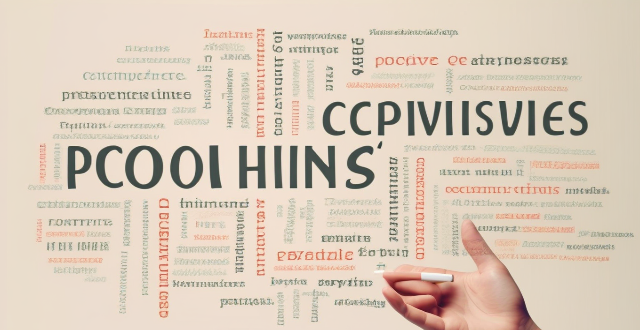This text provides a comprehensive guide on how to develop critical thinking skills while learning about history. It starts by emphasizing the importance of understanding the basics and questioning everything. The author then suggests analyzing sources, connecting the dots, debating and discussing, reflecting and reevaluating, applying historical knowledge, practicing writing, and staying curious. By following these steps, readers can enhance their ability to think critically about various subjects and gain a deeper understanding of history.

Developing Critical Thinking Skills While Learning About History
Understand the Basics
- Start by learning the basics of history. This includes understanding the major events, people, and timelines.
- Use textbooks, online resources, and historical documentaries to build a foundational knowledge base.
Question Everything
- Always ask questions about what you're learning. Why did an event happen? What were the consequences? How might things have been different if key variables were changed?
- Challenge the information presented. Just because something is written in a textbook or said by a teacher doesn't mean it's the absolute truth.
Analyze Sources
- Evaluate the reliability of your sources. Are they primary or secondary? Biased or objective?
- Look for multiple perspectives on the same event. This will help you understand the complexities and nuances of history.
Connect the Dots
- Make connections between historical events. How does one event lead to another? What are the long-term effects of certain decisions or occurrences?
- Try to see the big picture rather than just isolated incidents.
Debate and Discuss
- Participate in discussions with peers, teachers, or even online communities. Hearing different viewpoints can challenge your own thinking.
- Practice presenting your ideas clearly and persuasively. This will not only strengthen your arguments but also expose any weaknesses that need to be addressed.
Reflect and Reevaluate
- After studying a topic, take time to reflect on what you've learned. Consider how your views may have changed.
- Be open to reevaluating your positions as you gain new information or insights.
Apply Historical Knowledge
- Try to apply historical knowledge to current events. How do past events influence modern politics, culture, or society?
- This exercise will not only deepen your understanding of history but also improve your ability to think critically about contemporary issues.
Practice Writing
- Write essays or reports where you analyze historical events. This forces you to organize your thoughts and defend your ideas.
- Get feedback on your writing. This can help you identify areas where your critical thinking needs improvement.
Stay Curious
- Never stop being curious. The more you seek to learn, the more opportunities you'll have to develop your critical thinking skills.
By following these steps, you'll not only gain a deeper understanding of history but also enhance your ability to think critically about various subjects. Remember, critical thinking is a skill that improves with practice, so keep challenging yourself and exploring new ideas.